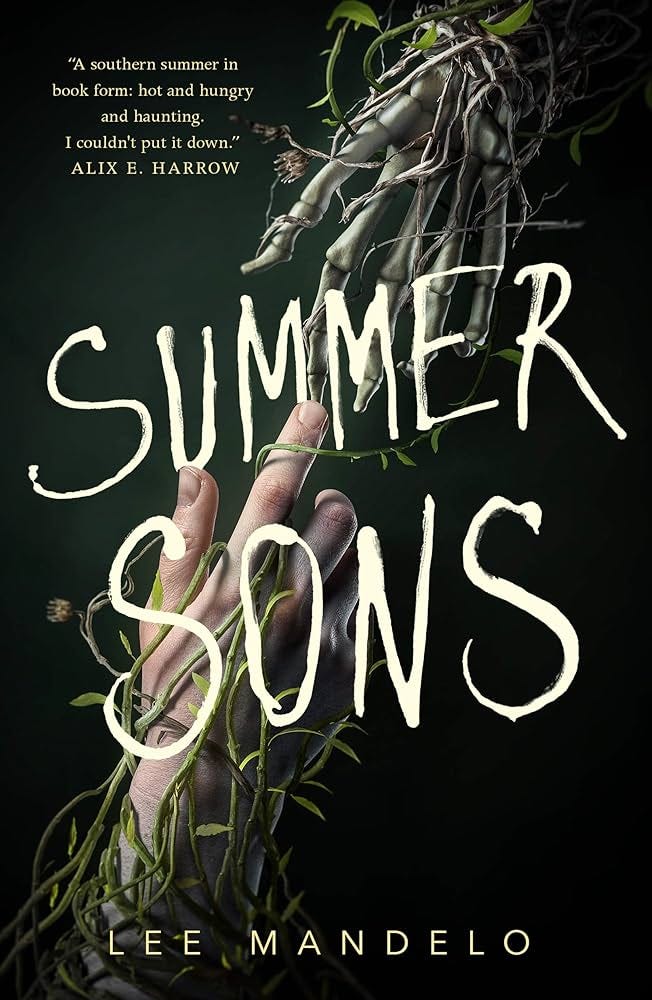Was it just a bad trip? Outrunning the monsters in 'Summer Sons' by Lee Mandelo
Under the influence of authorial choices and other lethal substances
I've done a lot of reading on ‘Summer Sons' over the last couple of weeks. In trying to consume as many outside opinions as I could, I hoped that it would help me find the route of most neutrality when it came to writing this piece.
If you want the full low-down on how we both felt about the book, then listen to this week's episode of the podcast here:
There are some really great articles and posts out there, I'll list below the ones I found particularly arresting. What I could not find, however, was anything substantial on the line of thought I had taken up.
In a broader sense, relating to the genre (if we're loosely placing ‘Summer Sons' within the Gothic at large), it's that argument of was it real? Or was it all in my mind? Usually, it's at the end of the read that we discover the protagonist has unwittingly been under the influence of something nefarious.
For example, in ‘Mexican Gothic’ we discover the true depths of the fungal horror at work. And in ‘She Is A Haunting’, the fungal blooming insects are in the walls, in the food, and so also inside of our protagonist.
In ‘Summer Sons’, the external and internal factors are much more straight forward. We are privy to a generous dose of self-medicating through MDMA among other things - and whereas we are led to believe that the haunting thing stalking them, watching, waiting, hounding them, is very much real and to be defeated in a very physical sense… There is still that kernel of doubt.
There is, of course, an open invitation for interpretation. The whole book can be examined as a metaphor for dealing with grief, and when you mix in other issues that need contending with by the protagonist, such as guilt, gender and sexual identity, toxic masculinity et al. It quickly becomes quite the monster to wrestle with.
What I find interesting in these kinds of narratives, is seeing how long the protagonist can outrun the inevitable for. You know, as the reader, that it's not sustainable, that it will all have to come to a head and be faced down sooner or later… It's just a matter of how and when.
‘Summer Sons' reaches its crescendo to great aplomb. The final 25% of the book is explosive and volatile and I finally felt like we'd moved through the gears, to reach top speed.
The question is, do you defeat the monster? Or are you devoured by it? In doing so you have two options really, to either become it yourself, or be held prisoner by it, in this life, or even, more tragically, in death.
‘Summer Sons’ at least offers something a bit different for the genre, and the trope. It's got a queer, mostly male presenting cast. There's no damsel in distress. There's danger around every corner, and while the narrative is slow, almost melodic in rhythm, it is consistent in its delivery.
It leaves me wondering why we even try to outrun our monsters at all? The survival instinct is strong, it’s part of our mechanism that remains quite unchanged as we have evolved. A biological failsafe to survive, and to continue. But we are also capable of understanding when something is futile, or inevitable.
Perhaps, by design, we also like to believe that the odds are, for want of a better phrase, ever in our favour. Or at least the possibility that they could be. Maybe today really is your lucky day. Or maybe, just maybe, today is the day it all catches up with you.
You just don't know.
Links:
Queerness and the Southern Gothic: Lee Mandelo’s Summer Sons





